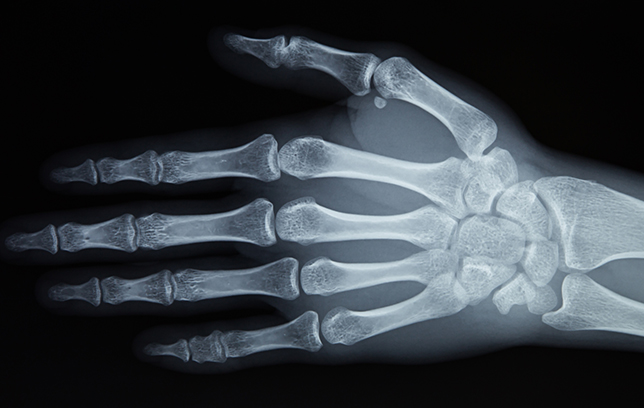Tales of terror about what happens when you crack your knuckles began, at least for me, with an annoyed third-grade teacher. Tired of the boys (it was always the boys) disrupting class with constant, digit-popping fusillades, she tried to dissuade us with predictions that we were inviting golf-ball sized joints, the inability to bend our fingers, or even arthritis.
Having a grandmother who suffered mightily from that affliction, I was haunted by the vision of impossibly gnarled hands, and with them the inability to pick up a baseball bat or open a letter. But the act was so satisfying that I ignored the scare tactics.
The cracking continued, and along with it speculation as to what actually caused the sound. Playground theories were abundant. Was it tearing cartilage? A bursting gas bubble? Maybe the friction between the bones that somehow, for some reason, broke the sound barrier?
We finally have an answer. And to the surprise of nobody, all of our elementary school hypothesizing wasn’t even close.
The Weirdest Health Benefit of Drinking Wine
In a study published last month, a team of scientists led by Greg Kawchuk, a professor of rehabilitation medicine at the University of Alberta, took an unprecedented look at knuckle-cracking in action. They asked a colleague, who Kawchuk describes as “the Wayne Gretzky of finger-cracking,” to put his hand inside an MRI scanner. Then they filmed it while pulling on the end of each of his fingers, just enough to make it crack.
Check out the video above to see the results.
What does that reveal? “Our study shows that the sound production is happening at the same time as we see the creation of a black void in the joint,” says Kawchuk. “This suggests the sound is associated with the formation of this void rather than the collapse of the void.”
In other words, there’s not some small gas bubble in your knuckle that pops when you squeeze it, like biting bubble gum. It’s actually the creation of a space within the knuckle, and begrudgingly.
There’s a word for it—and it’s a beauty. It’s called “tribonucleation”.
As it turns out, your knuckles don’t like being forced apart. They fight the pressure you exert on them until reaching a joint point of no return, where they then “separate rapidly creating sustained gas cavities.”
In a way, when you crack your knuckles, you’re giving your fingers a case of the vapors. (Kawchuk likes that comparison. “That’s a great way of saying it,” he says.)
Is It Bad That My Knees Crack When I Squat?
The long-term consequences of continued cracking are still being studied, but Kawchuk believes there’s been enough research to suggest “that knuckle cracking is not detrimental. Still, that doesn’t mean it’s beneficial either. My advice is to not worry about cracking your knuckles unless those around you find it repulsive. In that case, show restraint and be a responsible cracker.”
I’ll continue to tribonucleate with a clear conscience, the only consequence being mild annoyance of those around me, and taking satisfaction in lasting defiance of third-grade hysteria.















